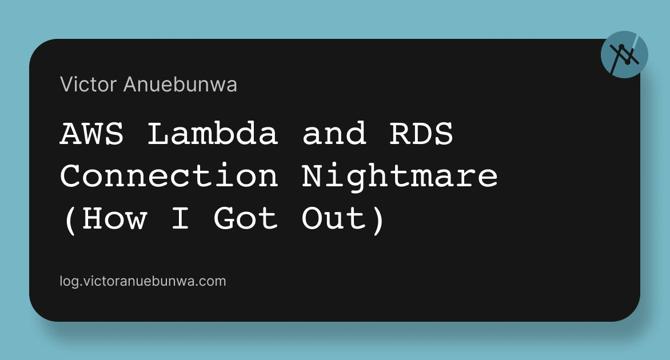Hackernoon
1M
203

Image Credit: Hackernoon
Avoiding ‘Too Many Connections’ in Lambda + RDS Workflows
- The article discusses the challenge of managing connections between AWS Lambda and RDS, particularly when processing large data from CSV files.
- The author shares their experience with Aurora Serverless v1 and the issues faced due to scaling differences between Lambda and RDS.
- Fixes attempted included retry mechanisms, connection pooling (ineffective due to Lambda environment behavior), and leveraging Lambda execution freezing.
- The recommended solution is RDS Proxy, introduced by AWS in 2019, which acts as a managed database proxy, managing connection pooling and reducing database stress.
- RDS Proxy advantages include handling auth, failover, and working across multiple Lambda instances, but it has some latency and is not free.
- With the release of Aurora Serverless v2, which integrates with RDS Proxy, the author suggests a stack combining Lambda, Aurora Serverless v2, RDS Proxy, and SNS/SQS for periodic processing.
- The article concludes with recommendations on best practices, such as not opening DB connections inside the handler, using appropriate database solutions, load testing, and ensuring suitability for specific use cases.
- Ultimately, with tools like RDS Proxy and Aurora Serverless v2, the article highlights how managing Lambda with relational databases has become more feasible for developers.
Read Full Article
12 Likes
For uninterrupted reading, download the app